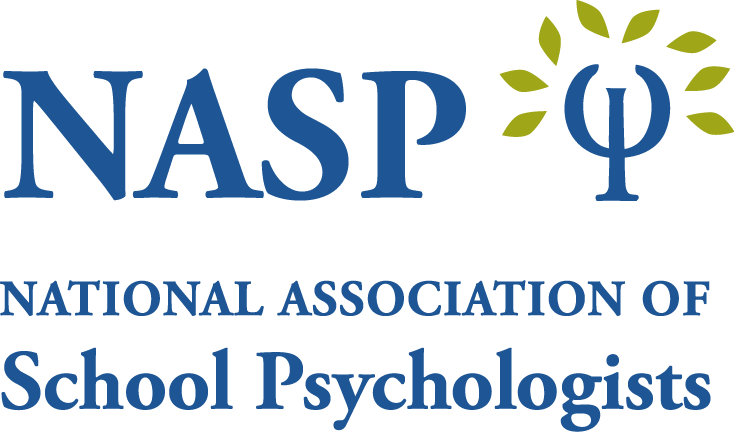Students who earn an Educational Specialist (EdS) in School Psychology from EWU should be able to:
- describe and accurately apply varied methods of assessment and data-collection methods for identifying strengths and needs, developing effective services and programs, and measuring progress and outcomes;
- articulate and apply varied methods of consultation, collaboration, and communication applicable to individuals, families, groups, and systems;
- design and evaluate evidence-based curriculum and instructional strategies that support cognitive and academic skills;
- design and evaluate services and programs that support socialization, positive behavior, and mental health;
- articulate key elements in school and systems structure, including multi-tiered systems of support;
- in collaboration with others, design comprehensive plans for multi-tiered prevention and empirically supported strategies for effective crisis preparation, response, and recovery;
- design, and evaluate services that facilitate family school partnerships and interactions with community agencies for enhancement of academic and social–behavioral outcomes for children;
- articulate best practices for culturally responsive assessment, consultation, and intervention and provide professional services that promote effective functioning for individuals, families, and schools with diverse characteristics, cultures, and backgrounds, and across multiple contexts;
- interpret, evaluate, and design single case and group design research, and apply these skills to collaboratively conduct program evaluation in applied settings;
- articulate and apply ethical, legal, and professional standards and demonstrate professional work characteristics needed for effective practice as school psychologists.
Hybrid Option
This hybrid track is designed for individuals who are pursuing careers in school psychology. This track of the EdS program includes online coursework with bi-weekly synchronous requirements on weeknights and quarterly on-campus training requirements. Appropriate candidates for the program have undergraduate degrees in psychology, education, or related fields. Those with master’s degrees who wish to have more face-to-face time than our fully online program offers may also apply. Candidates are encouraged to work in schools or related settings while completing coursework and field experiences throughout the program.
Note: Successful completion of the National School Psychology Certification Examination (Praxis II) and an oral examination that reviews the portfolio project and contents is required.
| APPLIED LEARNING THEORY AND BEHAVIOR MODIFICATION | 4 |
| PROFESSIONAL SCHOOL PSYCHOLOGY PRACTICE | 4 |
| PROFESSIONAL SCHOOL PSYCHOLOGY LAW | 4 |
| PROFESSIONAL SCHOOL PSYCHOLOGY ETHICS | 4 |
| FAMILY, SCHOOL, AND COMMUNITY COLLABORATION: DEVELOPMENT AND TRANSITION | 4 |
| EVIDENCE BASED PRACTICES | 4 |
| ACADEMIC ASSESSMENT FOR SCHOOL PSYCHOLOGY | 4 |
| RESEARCH & PROGRAM EVALUATION | 4 |
| SINGLE CASE DESIGN: EVALUATING EDUCATIONAL INTERVENTIONS | 4 |
| HUMAN NEUROPSYCHOLOGY | 4 |
| SEMINAR IN SPECIAL TOPICS (variable credit) | 3 |
| SCHOOL MENTAL HEALTH THEORY | 4 |
| SOCIAL, EMOTIONAL AND BEHAVIORAL ASSESSMENT OF CHILDREN AND ADOLESCENTS | 4 |
| COGNITIVE ASSESSMENT | 4 |
| SCHOOL PSYCHOLOGY PRACTICUM (variable credit–must be repeated) | 12 |
| ASSESSMENT | 4 |
| SCHOOL PSYCHOLOGY CONSULTATION | 4 |
| SCHOOL BASED INDIVIDUAL COUNSELING | 3 |
| DEVELOPMENTAL PSYCHOPATHOLOGY | 4 |
| SCHOOL-BASED PSYCHOEDUCATIONAL GROUP COUNSELING | 2 |
| ADVANCED DIAGNOSTIC ASSESSMENT | 4 |
| SCHOOL PSYCHOLOGY PORTFOLIO (variable credit) | 6 |
| INTERNSHIP IN SCHOOL PSYCHOLOGY (variable credit–must be repeated) | 15 |
| Total Credits | 109 |
Admission Requirements/Preparation
The application deadline is January 15th. All application materials must be received by January 15th for consideration of an interview for admission to the program. All interviews will be conducted via video conferencing. Applicants must use a web-camera and a headset with a microphone to complete the interview. Candidates are required to apply for the Pre-Residency Clearance in Washington State through the Eastern Washington University (EWU) Certification Office during the first summer of the program, which includes fingerprinting and background checks. Washington State residents with current educational certificates in other areas must be verified by the EWU Certification Office. To be considered for the program, students must:
- have a bachelor’s degree, in psychology, education, early childhood education, or related fields, with the applicant’s transcript showing evidence of courses in research methods, inferential statistics, learning, abnormal psychology, and developmental psychology (evidence of tests and measurement and biopsychology are highly recommended);
- have a GPA ≥3.0 in the last 90 quarter or 60 semester-graded credits;
- meet the requirements of the Graduate School;
- submit the program-specific application to GradCAS;
- provide three references for recommendation within GradCas;
- for the hybrid track, have a minimum of 150 hours of professionally relevant experience working with children, youth, and/or individuals with disabilities;
- for the online track, have at least three years of full-time experience teaching in schools or at least five years of relevant professional experience in a closely related field; if recommended for admission, students must complete all of the requirements for admission to Graduate Programs and the Department of Psychology before registering for classes.
We adhere to a scientist-practitioner model that prepares students for practice as a school psychologist. Candidates completing our program are prepared to receive a Residency Educational Staff Associate (ESA) Certificate in School Psychology from Washington’s Office of Superintendent of Public Instruction (OSPI). Graduates are eligible to become Nationally Certified School Psychologists. Coursework, practicum, internship, and portfolio expectations are aligned with state and national training standards. Specific areas of training include data-based decision making; consultation and collaboration; development of and support for academic and behavioral interventions; and, development and delivery of mental health services. The program emphasizes multi-tiered, evidence-based and equitable practices, with respect for diversity in development and learning and advocacy. Knowledge and skills are developed through integrated coursework, field experiences, and internship. Students complete a three-year sequential program of study, beginning in summer.
Technology Requirements for Participation
High bandwidth required; computer and browser requirements should follow program recommendations, webcam, a headset with microphone, and access to a personal scanner or printer that scans to PDF. Full participation throughout the web-conferencing activities and on-campus training is required to participate.

